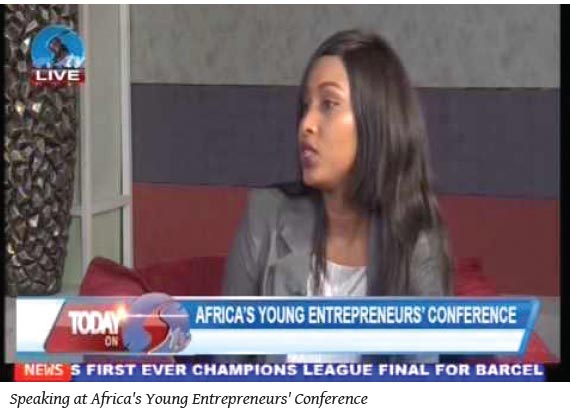From becoming her country’s youngest bank manager to being a venture capitalist in food security in Africa – on a visit to Bahrain, Ibada Ahmed shared essential life lessons with Behnaz Sanjana.
Kenyan national of Somali descent, Ibada Ahmed took on a job at Chase Bank at the tender age of 19. “I had no professional experience to speak of, but hailing from an entrepreneurial family, I could convince my interviewers that although I am no banker, I’m a learner first.” And with that she started her professional journey, with a salary of just $200 per month.
“In the first year I held a junior position in Forex sales; I’d done exceptionally well. The ability to sell is in my blood. I got a promotion every year, sometimes twice a year, thanks to the dynamic growth of the bank at the time,” she remembers.
She was soon promoted to the head office, working in the actual money markets. “After the trading closed for the day, I would use my free time to learn how other departments worked, which changed things for me. It was interesting to learn how a financial institution ran, from the credit department to the operations, to customer service and treasury.”
Islamic banking, a fairly new prevalence at the time lured Ibada with a new challenge. In spite of her superiors advising against it, she took on the role of assistant manager assets and liabilities of Islamic banking as the next step in her career. “In treasury, the pay hikes and bonuses were great, but I thought ‘what more?’ This calculated risk was the turning point of my career. And I tell people even today, that to achieve greatness, you must take a leap of faith, believe in yourself and persist at it.” She gave the new ballgame her all. “I’d never worked that hard,” she says.
In 2010 Ibada was offered the opportunity to become manager of Islamic banking in a key branch of Chase Bank. It made her, at just 23 years of age, the youngest bank manager in Kenya, endorsed by the Central Bank of Kenya no less. She says her age was never a hurdle. “My team supported and respected me for my excellence at my work; it was no struggle, really,” she explains.

She attributes her early success (and the journalists lining up for interviews) to her attitude of discipline and the thirst for more knowledge.
When she crossed paths with an investor bullish on microfinance, Ibada jumped in on the venture, to become CEO of Fursa Leo Micro Finance. With the aim of supporting more women, 80 per cent of her start-up backing was for females. “We observed that whatever you give a woman, she grows manifold. We’re better borrowers than men.”
Fursa Leo was a great run, and after a well-deserved sabbatical, Ibada co-founded Africa’s Young Entrepreneurs (AYE) in South Africa to foster the culture of enterprise and innovation amongst her people. “It is the largest entrepreneurship network in Africa, with six million members across 20 countries. Our programmes identify and fuel innovative business ideas across villages, towns and cities that will eventually drive Africa forward.”
Currently, she is dedicating her efforts to Hydroponics for Africa, an organisation with a mission to avert a food security crisis in the future. The United Nations Industrial Development Organisation’s conference brought her to Bahrain as an entrepreneur and development stakeholder to take AYE and her involvement in hydroponics further through exchanging information and technology.
Asked her mantra for success, she says: “Some say that my belief in the human capacity is exaggerated. There’s a businessman, an innovator, a thinker and a developer in all of us. What distinguishes the successful from the unsuccessful is consistency, and that is what drives me. It’s about taking that first step and then persisting till you get what you want. Even the river forges its own way through rocks. If you are disciplined enough to be consistent, then you’re going to get it done, and get it right.”


































